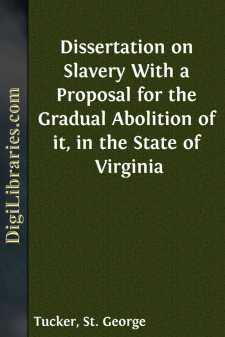Categories
- Antiques & Collectibles 13
- Architecture 36
- Art 48
- Bibles 22
- Biography & Autobiography 815
- Body, Mind & Spirit 144
- Business & Economics 28
- Children's Books 18
- Children's Fiction 14
- Computers 4
- Cooking 94
- Crafts & Hobbies 4
- Drama 346
- Education 58
- Family & Relationships 59
- Fiction 11835
- Games 19
- Gardening 17
- Health & Fitness 34
- History 1378
- House & Home 1
- Humor 147
- Juvenile Fiction 1873
- Juvenile Nonfiction 202
- Language Arts & Disciplines 89
- Law 16
- Literary Collections 686
- Literary Criticism 179
- Mathematics 13
- Medical 41
- Music 40
- Nature 180
- Non-Classifiable 1768
- Performing Arts 7
- Periodicals 1453
- Philosophy 65
- Photography 2
- Poetry 896
- Political Science 203
- Psychology 44
- Reference 154
- Religion 515
- Science 126
- Self-Help 85
- Social Science 83
- Sports & Recreation 34
- Study Aids 3
- Technology & Engineering 60
- Transportation 23
- Travel 463
- True Crime 29
Our website is made possible by displaying online advertisements to our visitors.
Please consider supporting us by disabling your ad blocker.
Hansford: A Tale of Bacon's Rebellion
Categories:
Description:
Excerpt
CHAPTER 1.
“The rose of England bloomed on Gertrude's cheek;What though these shades had seen her birth? Her sire
A Briton's independence taught to seek
Far western worlds.”
Gertrude of Wyoming.
Among those who had been driven, by the disturbances in England, to seek a more quiet home in the wilds of Virginia, was a gentleman of the name of Temple. An Englishman by birth, he was an unwilling spectator of the revolution which erected the dynasty of Cromwell upon the ruins of the British monarchy. He had never been able to divest his mind of that loyal veneration in which Charles Stuart was held by so many of his subjects, whose better judgments, if consulted, would have prompted them to unite with the revolutionists. But it was a strong principle with that noble party, who have borne in history the distinguished name of Cavaliers, rarely to consult the dictates of reason in questions of ancient prejudice. They preferred rather to err blindly with the long line of their loyal forbears in submission to tyranny, than to subvert the ancient principles of government in the attainment of freedom. They saw no difference between the knife of the surgeon and the sword of the destroyer—between the wholesome medicine, administered to heal, and the deadly poison, given to destroy.
Nor are these strong prejudices without their value in the administration of government, while they are absolutely essential to the guidance of a revolution. They retard and moderate those excesses which they cannot entirely control, and even though unable to avoid the descensus Averni, they render that easy descent less fatal and destructive. Nor is there anything in the history of revolutions more beautiful than this steady adherence to ancient principles—this faithful devotion to a fallen prince, when all others have forsaken him and fled. While man is capable of enjoying the blessings of freedom, the memory of Hampden will be cherished and revered; and yet there is something scarcely less attractive in the disinterested loyalty, the generous self-denial, of the devoted Hyde, who left the comforts of home, the pride of country and the allurements of fame, to join in the lonely wanderings of the banished Stuart.
When at last the revolution was accomplished, and Charles and the hopes of the Stuarts seemed to sleep in the same bloody grave, Colonel Temple, unwilling longer to remain under the government of a usurper, left England for Virginia, to enjoy in the quiet retirement of this infant colony, the peace and tranquillity which was denied him at home. From this, the last resting place of the standard of loyalty, he watched the indications of returning peace, and with a proud and grateful heart he hailed the advent of the restoration. For many years an influential member of the House of Burgesses, he at last retired from the busy scenes of political life to his estate in Gloucester, which, with a touching veneration for the past, he called Windsor Hall. Here, happy in the retrospection of a well spent life, and cheered and animated by the affection of a devoted wife and lovely daughter, the old Loyalist looked forward with a tranquil heart to the change which his increasing years warned him could not be far distant.
His wife, a notable dame of the olden time, who was selected, like the wife of the good vicar, for the qualities which wear best, was one of those thrifty, bountiful bodies, who care but little for the government under which they live, so long as their larders are well stored with provisions, and those around them are happy and contented. Possessed of a good mind, and of a kind heart, she devoted herself to the true objects of a woman's life, and reigned supreme at home. Even when her husband had been immersed in the cares and stirring events of the revolution, and she was forced to hear the many causes of complaint urged against the government and stoutly combatted by the Colonel, the good dame had felt far more interest in market money than in ship money—in the neatness of her own chamber, than in the purity of the Star Chamber—and, in short, forgot the great principles of political economy in her love for the more practical science of domestic economy. We have said that at home Mrs. Temple reigned supreme, and so indeed she did....













